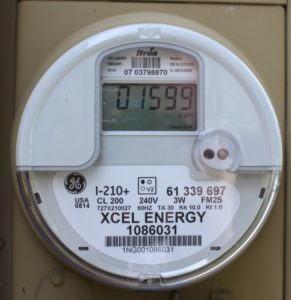 Xcel Energy’s recently approved Colorado Energy Plan (CEP) is what the company refers to as its “Steel for Fuel” strategy. With a green light from Colorado Public Utilities Commission (PUC), the CEP is a giant capital investment program to shutter Comanche I and II generating units a decade ahead of schedule. The CEP will replace the existing and reliable 700 megawatts of coal – the “Fuel” – with more than 2,000 megawatts of renewables – the “Steel.” The CEP would, by design, increase the company’s asset base, which it relies on for its shareholder profitability.
Xcel Energy’s recently approved Colorado Energy Plan (CEP) is what the company refers to as its “Steel for Fuel” strategy. With a green light from Colorado Public Utilities Commission (PUC), the CEP is a giant capital investment program to shutter Comanche I and II generating units a decade ahead of schedule. The CEP will replace the existing and reliable 700 megawatts of coal – the “Fuel” – with more than 2,000 megawatts of renewables – the “Steel.” The CEP would, by design, increase the company’s asset base, which it relies on for its shareholder profitability.
In its proposal, Xcel forecasts that this “Steel for Fuel” plan will save money, but the plan’s savings are several decades away. Even then, the proposal never lowers the cost of electricity, it only forecasts that it will lower the rate of increase. So, with all that said: What is this plan really about and why now?
The political and regulatory environment in the last decade has inspired a “green rush” of sorts, wherein the development of renewable resources is not just celebrated but rewarded in the form of tax breaks and other financial incentives. As a public utility, Xcel is understandably highly motivated to join in this practice. Massive investments in “Steel” translate into increased earnings with the goal of an increased stock prices. As a former Xcel employee my very small Xcel stock portfolio has performed well for a regulated utility.
However, because the actual load growth for most utilities has stalled or is historically low, the only growth option is to undertake massive investments in any regulatory approved source of generation. Xcel isn’t solely to blame. As a regulated utility, Xcel’s earnings are generated from the allowed return on investments that they make to provide reliable service to its ratepayers. No investments, no growth. The utility generally receives cost-plus-ten-percent on its investments, though those investments are part of the cost to serve its customers. The PUC is the gatekeeper in this environment, but if it just green lights any proposed green investment, it does a disservice to Colorado’s ratepayers.
The current set of rules within the state of Colorado is driving Xcel’s “Steel for Fuel” strategy. Without it, there are very few avenues that can reliably provide the growth its shareholders and Wall Street demand. Without this plan there is the possibility that its stock price could suffer. So, the bet is on shutting down coal units and putting workers out of work and investing in “green” intermittent sources of power with the hope that unproven power storage will become a reality no matter how expensive.
Here, sadly, is the problem for Xcel’s Colorado ratepayers: It’s impossible for electric utilities to make massive capital investments without increasing costs, and in the regulated utility world that means rising rates for customers. Anyone who has looked at their electric bills over the last decade knows that as Xcel has built more, rates have gone up.
In addition to the risk that Xcel’s ratepayers would assume, there are also jobs on the line. Roughly 80 well-paying Pueblo jobs will be lost if the Colorado Public Utilities Commission passes this plan. The International Brotherhood of Electrical Workers is, to date, deeply dissatisfied with the proposal because no tangible plan exists to get the affected workers employed (and similarly compensated) elsewhere.
I would submit that clean, green energy is certainly an admirable long-term goal, but not at the cost of the public good. The Colorado Energy Plan’s benefits are not in the near term. Since it’s difficult to forecast the cost of alternate sources of generation and changes in technology in the next 5 to 10 years, in my mind it makes more sense to wait for further clarity and not throw money at a problem that doesn’t exist. The opportunity for savings would still be there in the future with the delay and current Colorado ratepayers and Comanche employees wouldn’t be hurt. Hopefully the Colorado Public Utilities Commission agrees.
Duane Richards served as the Director of Coal for Xcel Energy until he retired from the company in 2004.


